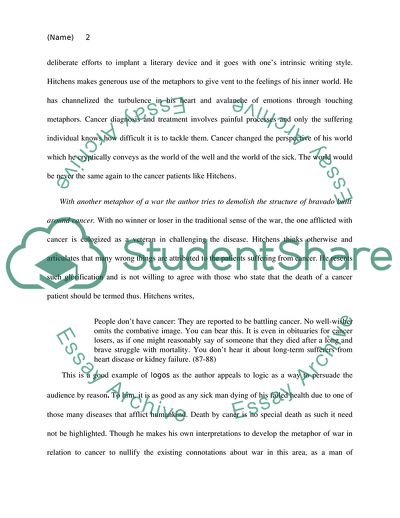Topic of Cancer by Hitchens vs Port-au-Prince -The Moment by Berlinski Literature review Example | Topics and Well Written Essays - 1750 words. https://studentshare.org/literature/1874915-comparison-contrast-analysis-essay
Topic of Cancer by Hitchens Vs Port-Au-Prince -The Moment by Berlinski Literature Review Example | Topics and Well Written Essays - 1750 Words. https://studentshare.org/literature/1874915-comparison-contrast-analysis-essay.


